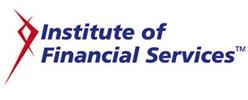"I have known David Henderson for seven years and during that time, he has had full control of my financial investment portfolio through retirement and the consequences of adjustment to widowhood. I have never had any cause to doubt his skilled advice and commitment. This has been delivered through a friendly and totally reliable relationship. I have regarded him as a trustworthy friend and in terms of the financial manoeuvres, his practical adjustments have (thus far in a volatile world!) all been safe and successful. He has been helpfully reassuring at times based on an extensive knowledge of theway the markets and global economy works I find this very educational. I have recommended his services to several friends all of whom have commented most favourably after his input totheir finances."
About Pensions
All pension schemes in the UK now operate under a single system of rules (introduced on 6 April 2006 – ‘A’ Day).
Within these common rules, many different ‘tools’ are available to save towards retirement, and the taxation and investment implications can appear baffling.
We specialise in explaining, recommending and monitoring pensions for you.
Below are the most common sources of pension to fund your retirement.
Single Tier State Pension
For everyone reaching State Pension Age (SPA) on or after 6 April 2016, you’ll get the new State Pension –currently a maximum of £164.35 per week – if you’re eligible, and:
* a man born on or after 6 April 1951
* a woman born on or after 6 April 1953
The amount may be lower, depending on your National Insurance (NI) record. You’ll usually need 10 qualifying years to get any new State Pension, and to qualify for the full amount you’ll need NI contributions for at least 35 years.
If you reached State Pension age before 6 April 2016, then as your State Pension you’ll continue to receive:
* The Basic State Pension – for those who have paid sufficient National Insurance contributions while at work, or have been credited with enough contributions.
* Additional State Pension – referred to as the State Second Pension (S2P) and known before 6 April 2002 as the State Earnings Related Pension Scheme (SERPS). From that date, S2P was based upon earnings on which standard rate Class 1 National Insurance contributions had been paid, or were treated as having been paid.
If during any period of your career you were self-employed, you may benefit from taking out a Personal Pension (below): not least because Additional State Pension is not available in respect of any self-employed income. So the time you spent self-employed will decrease the amount you receive through your State Pension.
Personal Pensions Scheme (including Stakeholder schemes)
These Money Purchase schemes are open to anyone. They are especially useful for topping up existing arrangements, if you are self-employed, or if you have ever been self-employed. You can hold benefits in more than one Personal Pension.
Workplace Pension
Every employer must now offer all their employees automatic enrolment into a workplace pension, with only a few exceptions. Employers can use the National Employment Savings Trust (NEST), which is the Government-backed scheme; or offer an alternative ‘Qualifying’ workplace pension scheme, such as the NHS Pension Scheme, or an alternative Group Scheme, providing it ‘ticks’ certain boxes.
Occupational Pension (such as the NHS schemes)
Depending on the date you joined your employer’s occupational scheme, you may qualify for benefits linked to your Final Salary (this is referred to as a Defined Benefit Scheme); or the benefits may be based on the Defined Contribution, (also referred to as a Money Purchase scheme). The benefits are based on the total amount of contributions paid in by you and your employer, and the performance of the scheme’s investment(s) over time.
Final Salary schemes provide pensions based on your finalsalary, and the total number of years of service you have at retirement, multiplied by an accrual rate – commonly 60ths. Under almost all Occupational Schemes, Final Salary benefits have not been available to new members for some years.
Retirement Options
There are a vast array of products providing benefits at retirement, to suit your preferences. These range from the traditional form of annuity, which provides a regular income; to Flexi-access Drawdown, which enables lump sums to be taken, either as a one-off payment or over a given number of years.
Given the choices available, it is important to seek independent financial advice before making any decisions.
Now, more than ever, it’s important to start thinking early in your career about how best to build up your retirement fund. The longer you hold off, the more you will need to contribute each year, once you do begin to save.
Whatever date you have in mind for your retirement; we can help you plan how your finances will support the lifestyle you want to maintain.
THE FINANCIAL CONDUCT AUTHORITY DOES NOT REGULATE TAXATION ADVICE.
Pensions are a long-term investment. You may get back less than you put in. Pensions can be and are subject to tax and regulatory change therefore the tax treatment of pension benefits can and may change in the future.










